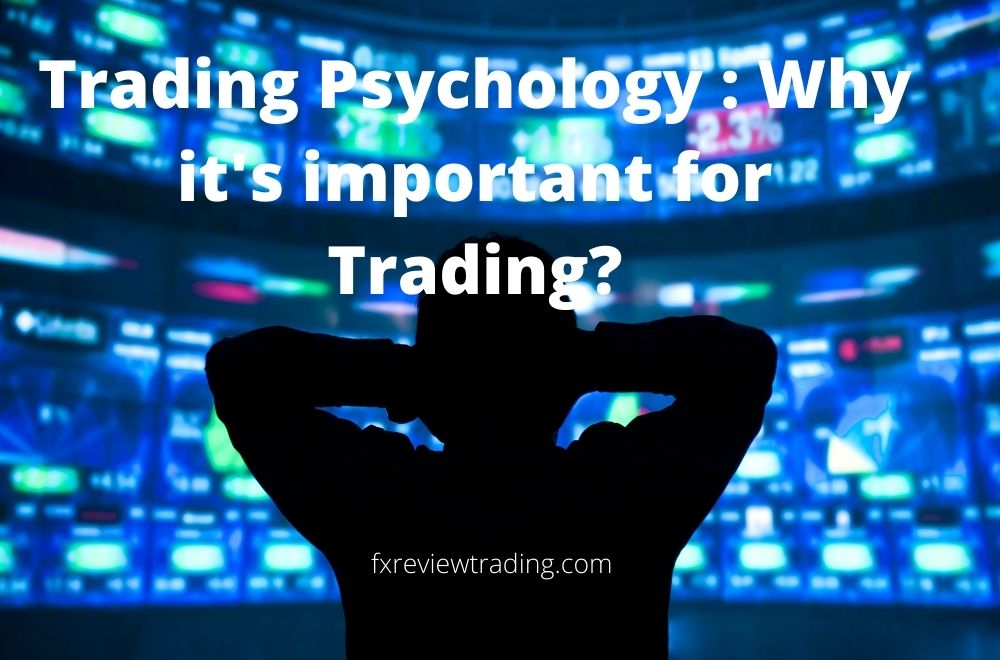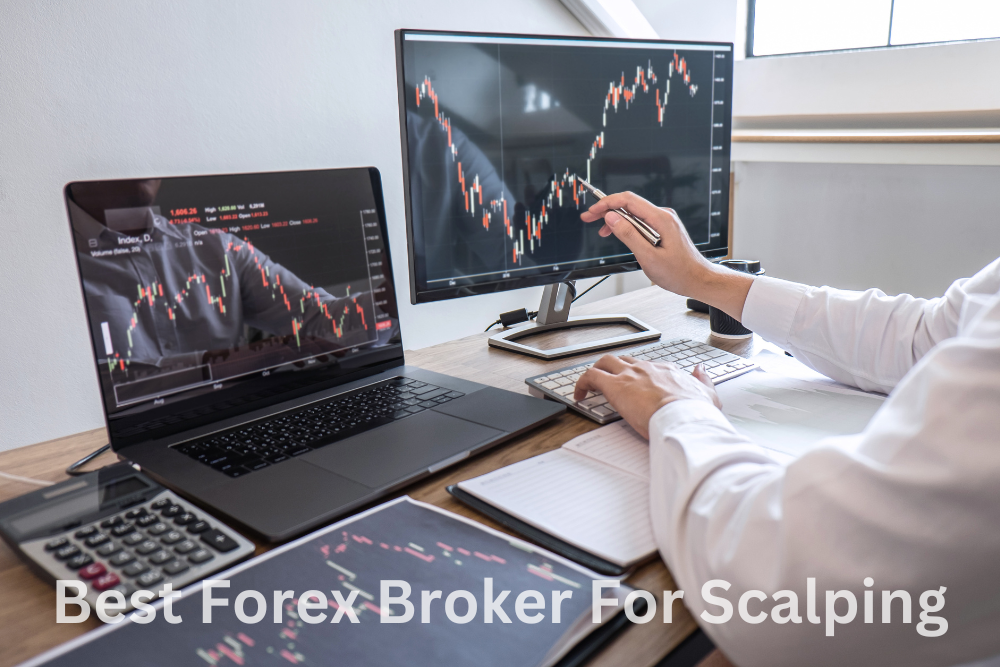When it comes to trading psychology, there are a variety of emotions and skills to consider, which may be thought of as two sides of the same coin. For example, Traders must be quick-witted while also considering the next move.
In addition, they must maintain a level of discipline and respect their gut instincts regarding trading opportunities. As a result, there is an exact opposite to every feeling related to trading psychology to consider.
Read this article till the end to understand trading psychology and its importance in trading. So, let’s start now!
What is Trading Psychology?
Trading psychology refers to the emotions, mental states, and attitudes that influence whether a trader succeeds or fails. The term “trading psychology” refers to the different components of a trader’s personality and behavior that influence their trading decisions and planning.
Trading psychology might be just as essential as other factors like knowledge, experience, and competence to determine trading performance points.
Two of the most considerable parts of trading psychology are discipline and risk-bearing because a trader’s ability to execute these aspects is crucial to the success of a trading plan.
It is connected with fear and greed, but other feelings such as hope and guilt also play a part in trading behavior.
Why Trading Psychology Is Important?
Emotions play a pivotal role in trading psychology. Traders must be decisive and should act quickly while trading securities. At the same time, they must maintain their composure at all times. They must be “risk-takers” while simultaneously exercising caution. Surely, these feelings and acts are ineffective?
Even the top traders must lay the groundwork for their future success in the early stages of trading. A trader can experience feelings on both ends of the emotional spectrum in a relatively short amount of time.
How well traders manage their trading emotions & mental state, think patterns, and stay focused will determine how successful they are.
3 Most Common Emotions Every Trader Experience:
We’ll look at three of the key emotions that control the thoughts of some traders. Trading psychology is linked to a few distinct emotions and trading actions used as stimulants for market trading.
According to traditional market characterizations, most emotional trading is attributed to two main emotions: greed and fear. These psychological factors affect most traders while trading.
Here are 3 most common emotions every trader’s experience while trading:
Greed:
It is defined as an excessive desire for making money, which can sometimes cloud rationality and judgment. As a result, this definition of greed-inspired investor assumes that this tricky emotion can induce traders to engage in a wide range of dissatisfactory activities.
Making high-risk trades, buying shares of an untested firm because its price is rising quickly, or buying shares without researching the underlying investment are examples of this.
Greed can also motivate traders to take risky and speculative positions, which results in a few bad trades. It is generally observed in a bull market.
Fear:
Fear encourages traders to terminate even winning positions soon or refrain from bearing risks because traders are afraid of significant losses. It is evident during a bear market, and it is a powerful emotion that can induce traders and investors to act impatiently in their haste to quit the stock market.
Fear or nervousness frequently transforms into panic, resulting in significant market selloffs as a result of panic selling. It is common during bearish markets. Traders need to understand fear is a natural reaction to a perceived threat.
It has the ability to scrap an entire strategy which may close a good trading opportunity. While trading, risks could develop in many forms such as some bad news about the stocks or the market brokes out.
Regret may lead a trader to enter a trade after initially missing out due to the stock’s rapid movement. A trader could regret placing a trade or regret not placing one. This is a breach of trading discipline, and it frequently results from indirect losses as security prices fall from their peak highs.
Happiness:
We don’t feel the need to think critically when we’re in a good mood because we don’t perceive any threat. When we are in a good mood, we are more likely to make impulsive, ill-considered judgments.
This is due to the fact that when we are happy, we are more prone to consider our possible gains, and by doing so, we believe they are more likely to occur (this is called the saliency bias).
When we’re in a good mood, we’re more inclined to see ambiguous information (like a market signal) as a positive indication and, as a result, we’re more optimistic about our risk.
A trader should identify personality traits early enough and plan how to overcome the negative traits when actively trading.
How To Control Emotions By Using Trading Psychology?
Trading psychology can assist you in becoming a successful trader. Here are some of the tips to control your emotions while trading:
Examine Investment’s Benefits and Drawbacks:
Make efforts to consider the advantages and disadvantages of each investment, as well as potential motives to buy and sell. You may take a balanced approach rather than be influenced by your perspective.
Generally, clear your doubts with experts and have a good understanding of a particular asset. It’s critical not to consider facts and figures that confirm your previous notions. This is quite hazardous!
Don’t Let Past Failures Influence Your Future Decisions:
Degrade your past performance and fund your gains. Do not let the prior experience of losing trades cause you to lose sight of your risk/reward ratio. Successful traders will remember their unpleasant losses, but they will not impact their future decisions.
Consider it a fresh start after each trade. For instance, if you are naturally calm and calculated, you can take advantage of these personality traits during your time on the markets.
Consider Trends As Your Friend Until They Change:
When it comes to the stock market, the trend is your friend. Don’t get lured in. Momentum can cause massive short-term volatility in financial markets such as indices, futures contracts, and any other sort of investment.
Generally, things can seem very different after the supply/demand ratio is balanced. Many individuals believe that buying futures contracts is the most challenging decision. However, it is when to sell them and close your position in many aspects.
Never Stop Learning New Things:
Whether you’re new to investment trading or experienced, you should never stop learning. When you assume you “know it all,” the stock market will bite you and leave you behind. Even Warren Buffett never stops learning.
Have Faith in Yourself:
Why are you investing if you don’t believe in your research, gut instincts, or ideas? Why not just hand your money to a third-party investing firm, pay them a management fee, and leave it there? When you don’t trust your judgment, how do you know when it’s the correct time to get in and when it’s the right time to get out if you “follow the trend”?
Accept Changes with Time:
There’s a reason why dinosaurs went extinct. Unless you learn to change with the times, the same will happen to you. Day traders and those who want to cash in on short-term profits flock to the futures market.
There’s nothing wrong with supporting your own research and thoughts, and it’s much better if the trend lines and graph patterns back it up. Make use of any tools you have at your disposal as they can help you to a great extent.
Cut Your Losses:
It is sound advice whether you’re looking at stocks and shares, futures contracts, or any other sort of investment. Surprisingly, many people do the exact opposite, panicking and selling too soon or not applying stop-loss, which allows their losses to spiral out of control.
Nevertheless, you should have a profitable trading career if you achieve trading success and cut your losses. Make use of trading bias, which means that you could be more likely to trade an asset that you have had past success on or to avoid an asset on which you have incurred a historic loss.
Take Only Calculative Risks:
A prevalent misunderstanding is an excessive risk that can affect a trader’s mindset. While certain trades appear to be dangerous, you must consider all sides of the equation.
A trader has decided that there may be an even higher gain if there is a significant risk. In other words, it doesn’t make sense if the danger is larger than the potential rewards.
How Do Emotions Affect Your Trading Experience?
You’re probably thinking about how you can increase your trading performance and be more flexible by changing your calculated mindset with trading psychology. We’ll now go through some common blunders created by human emotions:
Knowledge That Didn’t Match Your Theory:
Technical analysts tend to see what they want and overlook information that contradicts business ideas. A skilled trader would see both sides of the argument, the matter against each other, and reach a reasonable conclusion.
Unfortunately, before even considering the basics, many traders have already made up their minds about their next investment.
Losses Leave An Indelible Mark On Traders:
While the prospect of a defeat should never be underestimated, everything must be counted as necessary in context. If you bought an option and the stock markets went against you, but you sold on the first downturn, you made the proper decision in relative terms.
In reality, it’s critical not to stay on losses; don’t let them dictate your trading decisions in the future; learn from them and create a new plan. Cutting your big win too soon is the most usual result. Don’t let your overconfidence affect your trading style.
Derive The Correct Conclusion:
In all walks of life, history repeats itself regularly. Even best traders find it difficult to derive the correct conclusions because no one knows about the future. When confronted with data and figures about an investment, it’s easy to subconsciously recall similar situations from the past.
Whether it’s a favorable or terrible experience, it can impair your judgment. Even though the facts and data, in the form of the current risk/reward ratio, are right in front of you. Things shift. Nothing remains the same indefinitely!
Conclusion
Trading psychology is a valuable weapon to have in your arsenal. Without the mental strength to stick to a plan, the best strategy in the world won’t do any good. Make use of technical analysis for sound decision-making.
A good and successful trading strategy improves through accepting errors and imperfections. Sticking to your trading plan will take a lot of discipline, but it’s simple to master if you recognize what negative emotions prevent you from making effective trading selections.
Once you control your emotions, no one can stop you from becoming a successful trader. So, start your journey today by opening a trading account on the ABInvesting platform.








